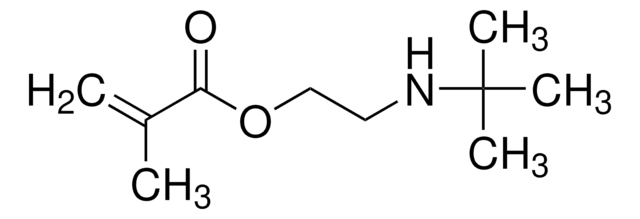All Photos(2)
About This Item
Linear Formula:
CH3(CH2)3OCOCH=CHCOO(CH2)3CH3
CAS Number:
Molecular Weight:
228.28
Beilstein:
1726634
EC Number:
MDL number:
UNSPSC Code:
12352100
PubChem Substance ID:
NACRES:
NA.22
Recommended Products
Quality Level
Assay
96%
form
liquid
refractive index
n20/D 1.445 (lit.)
bp
281 °C (lit.)
density
0.988 g/mL at 25 °C (lit.)
SMILES string
[H]\C(=C(/[H])C(=O)OCCCC)C(=O)OCCCC
InChI
1S/C12H20O4/c1-3-5-9-15-11(13)7-8-12(14)16-10-6-4-2/h7-8H,3-6,9-10H2,1-2H3/b8-7-
InChI key
JBSLOWBPDRZSMB-FPLPWBNLSA-N
Looking for similar products? Visit Product Comparison Guide
Signal Word
Warning
Hazard Statements
Precautionary Statements
Hazard Classifications
Aquatic Chronic 2 - Skin Sens. 1 - STOT RE 2 Oral
Target Organs
Kidney
Storage Class Code
10 - Combustible liquids
WGK
WGK 2
Flash Point(F)
248.0 °F
Flash Point(C)
120 °C
Personal Protective Equipment
dust mask type N95 (US), Eyeshields, Gloves
Choose from one of the most recent versions:
Already Own This Product?
Find documentation for the products that you have recently purchased in the Document Library.
Customers Also Viewed
Contact dermatitis from dibutyl maleate.
J S English et al.
Contact dermatitis, 13(5), 337-338 (1985-11-01)
Allergic contact dermatitis from occupational exposure to dibutyl maleate.
Denis Sasseville et al.
Contact dermatitis, 60(5), 298-300 (2009-04-29)
J Thormann et al.
Contact dermatitis, 13(5), 314-316 (1985-11-01)
10 of 20 workers in an envelope-making factory developed contact dermatitis. The cause was dibutyl maleinate, which was added to a polyvinylacetate glue. Dibutyl maleinate is a strong sensitizer and should be withdrawn from industrial use.
Xiaoping Zhan et al.
European journal of pharmaceutics and biopharmaceutics : official journal of Arbeitsgemeinschaft fur Pharmazeutische Verfahrenstechnik e.V, 66(3), 429-434 (2007-01-02)
Poly(2-hydroxy-3-phenoxypropylacrylate, 4-hydroxybutyl acrylate, dibutyl maleate) membrane was synthesized by UV curing method in our laboratory for the first time. When above-mentioned monomers were in the weight ratio of 4:4:2, the membrane not only had perfect permeation property but also had
Alfredo A Marchetti et al.
Chemosphere, 52(5), 861-868 (2003-05-22)
The addition of oxygen-bearing compounds to diesel fuel considerably reduces particulate emissions. TGME and DBM have been identified as possible diesel additives based on their physicochemical characteristics and performance in engine tests. Although these compounds will reduce particulate emissions, their
Our team of scientists has experience in all areas of research including Life Science, Material Science, Chemical Synthesis, Chromatography, Analytical and many others.
Contact Technical Service
















